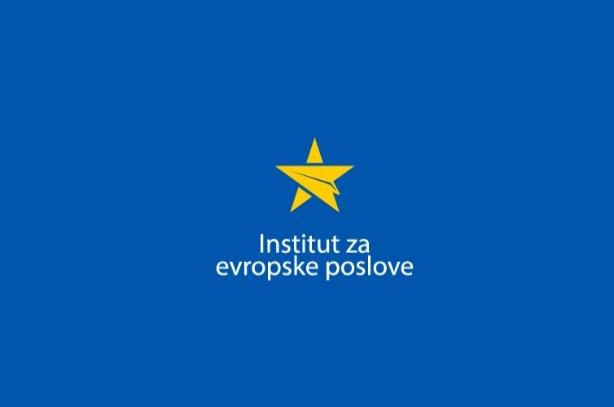
WHY IS DISCUSSION AT #EUdebata A PROBLEM?
The Nis hotel New City has cancelled their services oh hosting to the Institute for European Affairs on the day of the #EUdebate named “Freedom of expression on the trail of European values”, which was due to take place tonight/last night, April 22 from 19 to 21h. In the explanation of the cancellation of the debate, just hours before it was set to take place, it is stated that the whole hall was flooded due to a breakdown. We doubt the accuracy of these allegations, since the hotel does/did not allow the Institute’s team to access the hall and evaluates the situation themselves, and the hotel does/did not offer any alternative. The debate was supposed to be moderated by journalist Olja Bećković, and more than 200 citizens of Niš registered for the event. Scheduled speakers were professor of media ethics Dr. Čedomir Čupić, journalists Ivan Ivanović and Milojko Pantić and deputy editor of NIN Vesna Mališić. Initially, the media adviser of the President of the Republic of Serbia, Suzana Vasiljevć confirmed her participation in the debate, and then cancelled with an explanation that she was out of country, promising to speak at a debate in Belgrade on May 15th.
Topics that were supposed to be discussed were: Why are free and ethical media necessary for the development of democracy and society? What are the challenges journalists face in the time of turbulent political tensions? How much the accession negotiations with the European Union practically impact the freedom of speech? What are the other challenges and problems that Serbia encounters in the field of creating a space for dialogue and exchange of views in society?
The cancellation of the hospitality by the hotel, owned by the high-ranking SPS official Novica Toncev, the Institute for European Affairs sees as a sabotage and narrowing the space for dialogue on important issues for all citizens. On the problem of closing public spaces for critical thought in Belgrade, Nis and Kragujevac, the Institute has already informed the European Commission and the Delegation of the European Union to Serbia. We now inform the public that it is increasingly difficult to talk in public spaces. The premises that confirmed, and then cancelled in a very short time in the past year, are the Bitef Theater and the Cultural Center Hall in Belgrade, the Nis Symphoony Orchestra and the House of the Officers in Nis and the theater Joakim Vujic in Kragujevac. All the premises were cancelled under different excuses, and the most common is that they forgot that they already have arranged something for that moment.
The impartiality of the debate is illustrated by the fact that in more than 20 debates in the 6 largest cities in Serbia, more than 300 people were invited to speak, and more than 80 speakers of all political options, universities, culture and the media and professions spoke, including those with which the Institute has nothing in common. Some of the speakers were Antonela Riha, Bojana Maljevic, Borko Stefanovic, Bosko Jaksic, Branislav Lecic, Branko Ruzic, Cedomir Jovanovic, Dejan Vuk Stankovic, Dinko Gruhonjic, Dragan Sormaz, Dragan Sutanovac, Dragoslav Draza Petrovic, Dragoslav Barzut, Dusan Cavic, Dusan Milisavljević, Dušan Šaponja, Galeb Nikačević, Goran Gordja, Goran Miletić, Hajrudin Hajrović, Jovanka Matić, Jadranka Jovišić, Jovo Bakić, Ljubica Gojgić, Michael Davenport, Maja Kamenov, Marija Stokuća, Marko Savković, Marko Šelić, Milan Marić, Milos Janković, Miloš Jovanović, Minja Bogavac, Miodrag Majić, Miroslav Prokopijević, Nenad Čanak, Nenad Cvetićanin, Nikola Burazer, Nikola Tanasić, Rada Trajković, Ratko Femić, Rodoljub Šabić, Sead Biberović, Semir Gicić, Slobodan Arežina, Sonja Biserko, Srbijanka Turajlić , Srdjan Nogo, Stefan Gajic, Stevan Dojcinovic, Stevan Filipovic, Suzana Grubjesic, Teofil Pancic, Vesna Pesic, Vukašin Obradovic, Zoran Lutovac and Zarko Korac.
The Institute apologizes to all the citizens of Niš, speakers, moderators and all companies that are engaged as technical support for cancelling the debate. In accordance with the contract, the hotel will have to pay the fine for cancellation, and the Institute will also initiate a legal procedure for collecting all expenses incurred in the organization. However, the biggest expense, a discussion with citizens about important topics, is unprofitable. We invite the citizens of Niš to encourage their representatives to open the public spaces for dialogue and we promise that we will come to Nis again!
The next #EUdebata was announced for May the 15th at the Belgrade Youth Center, unless they cancel as well. Debate is part of the project “Debating about the relations between Serbia and the European Union” funded by the German Embassy in Belgrade, which was also informed about the incident.



